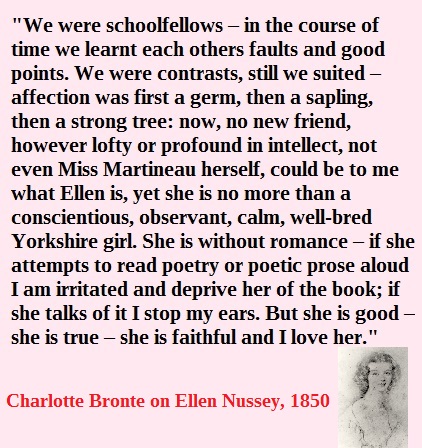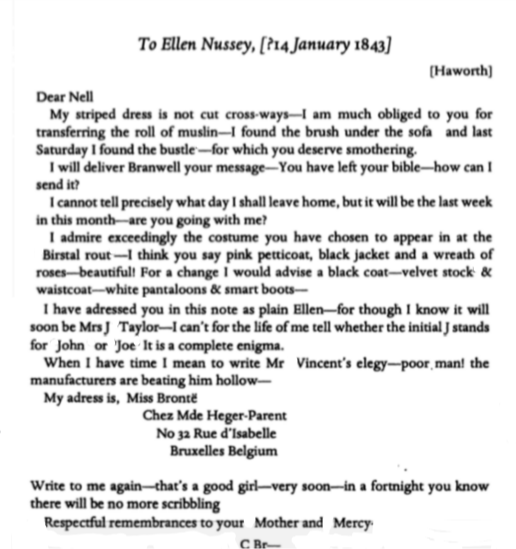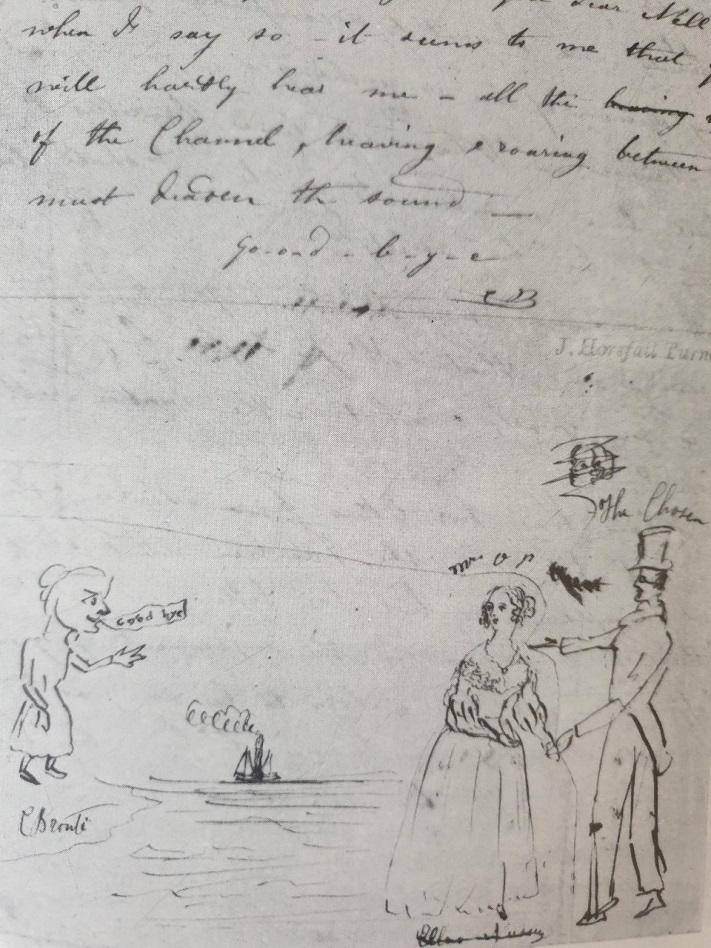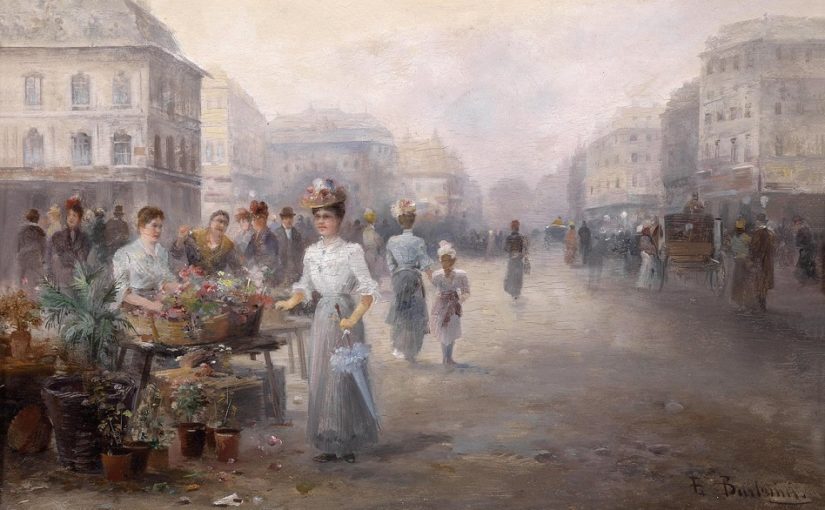We saw in last week’s blog post how central Ellen Nussey was to the Brontë story – she was there at many of the most important events in the lives, and deaths, of the Brontë family. To Charlotte Brontë she was a lifelong best friend, and their relationship was summed up perfectly in a letter she wrote to her publisher:

It is another letter that Charlotte wrote, however, that we look at in today’s post – one in which she bids Ellen a fond farewell. It was sent on this day 1834 – 190 years ago to the day. A transcript of the letter follows below:

Charlotte is at her cheery best in this letter. She chides Ellen for buying her a gift – something Ellen often did; on this occasion it was a bustle. Charlotte’s threat to ‘smother’ her friend for the gift is delivered playfully, but it seems from this and other letters that Charlotte was all too painfully aware of the difference in social status, and finances, between herself and Ellen who came from a relatively wealthy manufacturing family.
We also see Charlotte delivering fashion advice to Ellen, and chiding her over the possibility of one of the Taylor family of nearby Gomersal courting her – the family that produced their mutual friend Mary Taylor. Charlotte also promises to write an elegy for poor Mr Vincent. Reverend Vincent was not dead, but his romantic advances had recently been rebuffed by Ellen.
Finally, we read Charlotte encouraging Ellen to write soon; the reason for this is that Charlotte is about to set sail for Brussels alongside her sister Emily Brontë (a picture of Victorian Brussels adorns the head of this post). This must have been an incredibly exciting time for Charlotte, a world of travel and adventure was about to open itself up for her – the sort of opportunity she had yearned for as a child when creating the imaginary kingdom of Angria. Alongside this happiness, though, there was a sadness – a sadness that she will have to wave goodbye to Ellen. We see this in a picture drawn by Charlotte at the foot of a subsequent letter – Charlotte has drawn herself in typical self-deprecating manner waving good-bye across the English Channel to Ellen, who has the ‘chosen’ alongside her – the aforementioned O. P. Vincent.

If Charlotte worried that Ellen would find a man in her absence, maybe that she would marry and have no more time for her friend, she was wrong. Ellen never married – it was the friendship and love she had for Charlotte that endured throughout her life.
The two years in Brussels were hugely important for Charlotte and for her subsequent writing, but she eventually realised there was no place like home and the people waiting for her there. I hope to see you next week for another new Brontë blog post.
